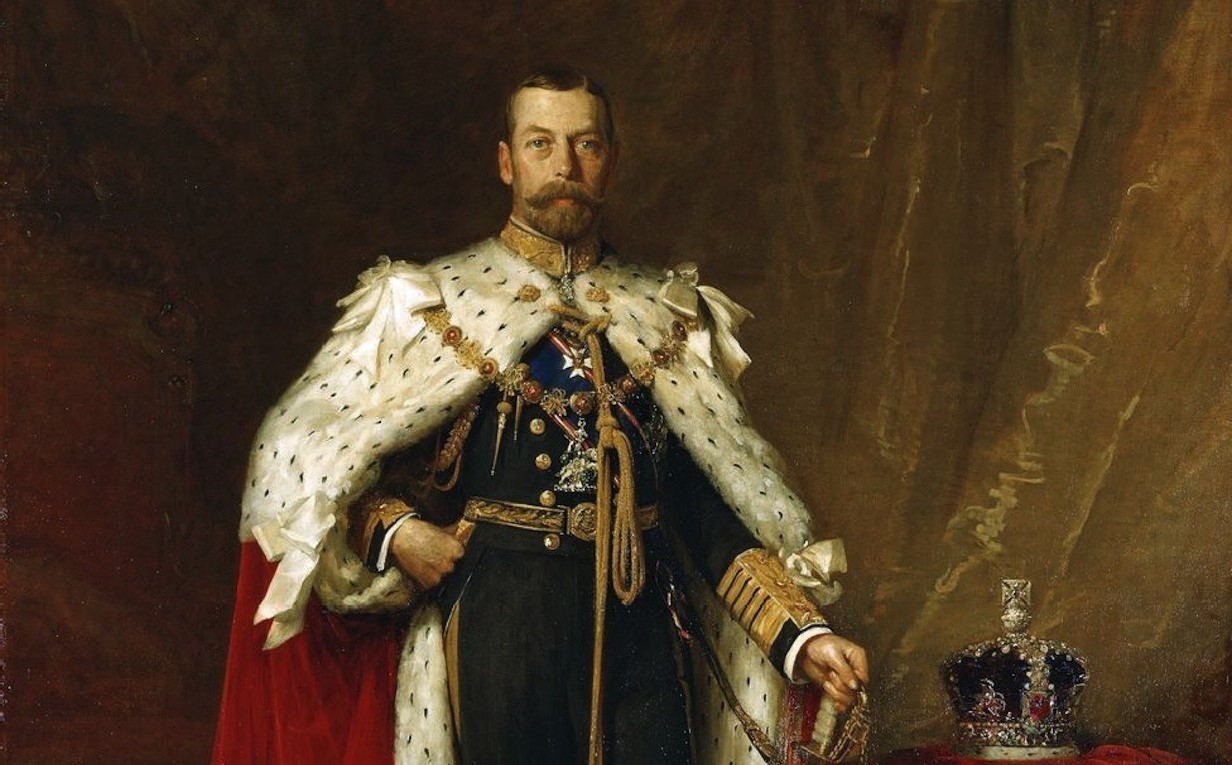 As the second son of Edward VII, George was never meant to be king of Britain. However, fate would intervene and this strict disciplinarian and devoted husband, would go from a career in the navy, to becoming a father figure of the nation, leading Britain into the 20th century where the world would rapidly change.
As the second son of Edward VII, George was never meant to be king of Britain. However, fate would intervene and this strict disciplinarian and devoted husband, would go from a career in the navy, to becoming a father figure of the nation, leading Britain into the 20th century where the world would rapidly change.
He would also change the name of the British royal family. In our latest blog of “The House of Windsor” series, we take a look at the life of George V.
The Young Prince
George Frederick Ernest Albert was born on 3rd June, 1865. Being only 17 months younger than his brother, Albert Victor, both boys were educated together. Neither of them excelled academically however, and it was decided by their father that the best thing for them would be to join the navy.
In September 1877, with George just 12 years of age, both brothers joined the cadet training vessel HMS Britannia. In 1879 they began service aboard HMS Bacchante and spent the next three years travelling the world, including the British Empire in the Caribbean, South Africa and Australia.
An Unexpected Twist
After an unsuccessful six months in Lausanne trying to learn French and German, which had been at the request of Queen Victoria, the two brothers parted ways. George went back to the navy and Albert Victor, although many thought him distinctly unpromising, attended Trinity College, Cambridge, to prepare for the throne.
Up until 1892, that is how life continued for both men, but at the beginning of that year a flu epidemic was sweeping the world. Albert Victor contracted this, which quickly turned into pneumonia, and less than a week after his 28th birthday, he died. Edward was now heir apparent.
A Change of Fortune
George left the navy and in 1893, married his brother’s fiancée, Mary. They would go on to have six children, five boys and a girl.
Unlike Queen Victoria’s reluctance in allowing Edward VII access to royal responsibility, Edward positively encouraged it with his son. Along with learning new languages and also learning about the constitution, George was introduced to numerous politicians, dignitaries and military men by his father, in a bid to prepare him for the throne.
Becoming King
In 1901, George’s “grandmama”, Queen Victoria, died and Edward VII became King. George became the new Prince of Wales. With his wife by his side, George embarked on extensive tours of the British Empire, taking in, among other places, Australia, New Zealand, Canada, India and South Africa.
Edward VII died on 6th May 1910 and on 22nd June 1911, George and Mary were crowned King and Queen of the United Kingdom and the British Dominions, and as Emperor and Empress of India.
The new king had to immediately attend to domestic issues, with turmoil in the House of Lords and also the issue of Home Rule in Ireland. None of this would compare, however, with the events leading up to the beginning of World War One.
George and the House of Windsor
During the First World War, George V went from inexperienced king to a father figure and national symbol for the nation. The war also changed the British royal family forever.
Due to anti-German sentiment in Britain during the war, in 1917, George, with the assistance of his private secretary, changed the family name from Saxe-Coburg-Gotha to Windsor, named after Windsor Castle. He also created the Order of the British Empire, which made him extremely popular, as for the first time, ordinary people could be recognized for their good deeds.
He also, in 1918, appointed Buckingham Palace’s first full time press secretary, making he and his family, the most accessible British royal family there had ever been.
His popularity increased even further in 1932, when George V gave the first ever Christmas speech, by radio broadcast. For the first time, the people of Britain could put a voice to the face of the King.
In 1935 he was stunned and reduced to tears when he saw the outpouring of affection for him, when the King celebrated his Diamond Jubilee.
Ill Health
George V had suffered with ill health for many years. In 1915 he fell from his horse and developed breathing difficulties. He was also a heavy smoker, and 1928 developed septicemia.
After complaining of a cold, and slipping in and out of consciousness for a number of days, on January 20th 1936, George V died.
His legacy would be that he was a hardworking and deeply devoted King who touched a nation, on a personal level, in a way that no previous monarch had.
A threepence coin from the reign of George V can be found in our “Monarchs of the House of Windsor Threepence Set”, which you can view HERE.


